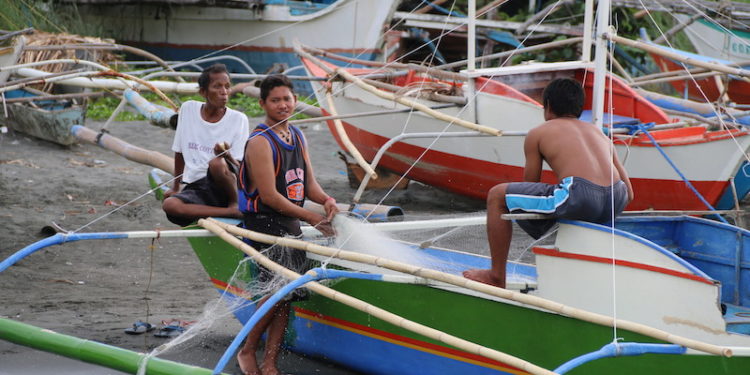In a dramatic step forward for Asia-Pacific and global ocean conservation, the Philippines has begun implementing sustainable fishing reforms with Environmental Defense Fund (EDF) as a partner providing critical support on science and policy.
The commitment was highlighted at the Our Ocean Conference in Malta this week, where the Philippines announced it would establish R03;these reforms for its major commercial fisheries by 2022.
‘Healthy fisheries are critical to the well-being of all Filipinos, and we are committed to making fishing sustainable nationwide,’ said Undersecretary for the Department of Agriculture for Fisheries, Eduardo Gongona, who also leads the Philippines’ Bureau of Fisheries and Aquatic Resources and announced the commitment in Malta. Undersecretary Gongona represents Agriculture Secretary Emmanuel (Manny) Piñol.
The Philippines is a top fishing nation in the Asia-Pacific region and boasts the highest marine diversity on the planet. Seafood is critical to the country’s food security. Millions of Filipinos depend on fishing for their livelihood, and 90% of the fish caught in the Philippines stays there, making up more than half of the animal protein consumed by the population.
‘We applaud the Philippines for this extraordinary commitment,’ said John Mimikakis, vice president for Asia with Environmental Defense Fund’s Oceans programme.
‘EDF is proud to be partnering with the Philippine fisheries bureau to set an example for the region and the rest of the world for how to build policies that can improve food security and provide economic development, while at the same time recovering fisheries.’
As part of the new fisheries law aimed at combatting this problem, the Philippine fisheries bureau has committed to building science-based policies and is partnering with Environmental Defense Fund to develop new scientific processes, provide training, and test new technologies.
Through this partnership, EDF will continue to provide science support sharing tools we have developed with the Philippine fisheries bureau as it develops reforms for the country’s major commercial fisheries.
Managers in the Philippines plan to use some of the low-cost methods, developed by EDF’s Fishery Solutions Centre, to assess the health of fish populations with the goal of managing fishing effort and catch to allow stocks to rebuild.
‘Data, science, participation, and transparency are the foundation for good policy,’ said Dr. Jose Ingles, an advisor to Environmental Defense Fund in the Philippines.
‘Together, we have an opportunity to build a roadmap for other nations to emulate on how to implement sustainable, science-based, and inclusive policy reforms for their fisheries.’
‘We view EDF as a critical partner to making fishing sustainable in the Philippines,’ commented Undersecretary Gongona. ‘By building our policy reforms on science and investing in reliable enforcement, we can ensure healthy fisheries for the future.’
Fisheries are vital to the Philippines, accounting for more than half of the animal protein consumed. Photo: Kaia Joye









